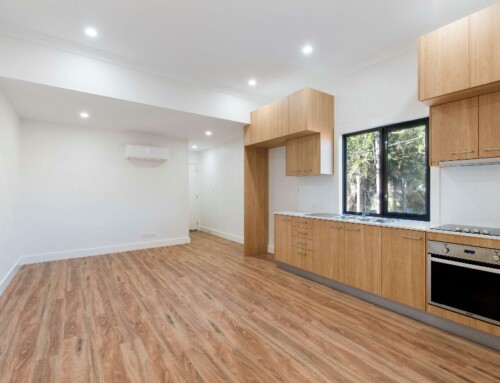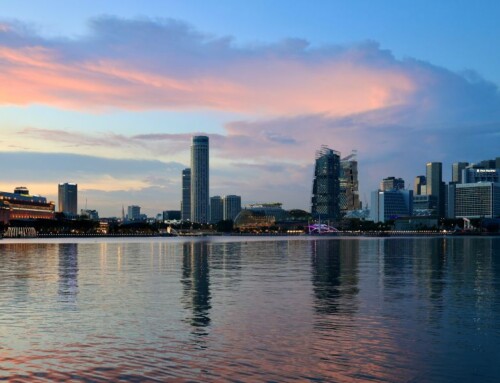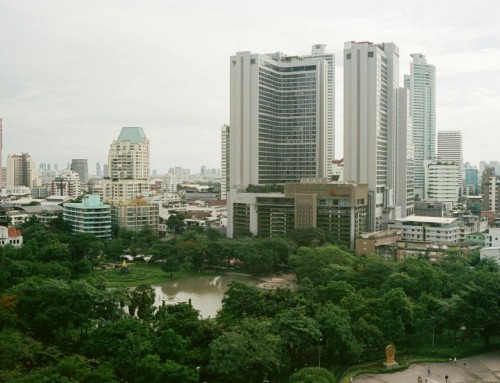To many property buyers, a property is not only one that gives you rental income and potential capital appreciation, to some, it forms part of an estate that will be left for their family members. There are many investors looking to purchase Thai property and would like to seek clarity about Thailand’s property inheritance laws, namely the taxes, succession and will making process in Thailand.
Taxes
The Thai government recently passed the country’s first inheritance-tax law and it was published in the Royal Gazette on the 5th of August 2015 and came into effect 180 days later on the 1st of February 2016.
Inheritance tax is levied on an inheritance valued more than THB 100 million. The tax is only levied on the amount above THB 100 million. Any inheritance less than THB 100 million is not subject to inheritance tax. The inheritance is taken as a total value of the whole inheritance and not on the assets individually. For example, if an individual inherits 20 condominiums valued at THB 10 million each, the total value will be THB 200 million and the inheritance tax will be levied. The average price of a 1 bedroom unit in central Bangkok is in the region of THB 4 million to THB 10 million. Thus, for most property investors with a few condominiums in Bangkok, this inheritance tax will never be levied on them.
The inheritance tax rate:
- 10% of the total value of the inheritance, for inheritor who is not a descendant or ascendant.
- 5% of the total value of the inheritance, for inheritor who is a descendant or ascendant.
For example:
If an individual inherits property with total value THB 500 million and has a debt of THB 150 million, his total value of the inheritance will be THB 350 million.
The inheritance tax will only be levied on THB 350 million – THB 100 million = THB 250 million.
If the individual is not a descendant or ascendant, 10% of THB 250 million = THB 25 million.
If the individual is a descendant or ascendant, 5% of THB 250 million = THB 12.5 million.
The wealthy individuals, be it in Thailand or in other parts of the world, do try to circumvent paying inheritance taxes. The Thai government has some measures in place to ensure that this amount does not go untaxed. There are taxes for gifts for immovable properties. If an immovable property gift exceeds 20 million Baht per tax year, the excess amount would be subject to personal income tax. The personal income tax table is as follows.
Personal Income Tax Table
| Income (Baht) | Tax Rates | Cumulative Tax | |
| From | Up to | ||
| 0 | 150,000 | 0% | 0 |
| 150,001 | 300,000 | 5% | 7,500 |
| 300,001 | 500,000 | 10% | 27,500 |
| 500,001 | 750,000 | 15% | 65,000 |
| 750,001 | 1,000,000 | 20% | 115,000 |
| 1,000,001 | 2,000,000 | 25% | 365,000 |
| 2,000,001 | 5,000,000 | 30% | 1,265,000 |
| 5,000,001 | and above | 35% | not applicable |
Succession
There are two scenarios to consider. When there is a valid will present and there is a lack of one. In Thailand, persons including foreigners are required to have a will that adheres to Thai law. You can draft a will in your home country but the will should conform to the laws of Thailand. As wills are contestable, it is always recommended for foreigners to draft a will in Thailand rather than leave the distribution of their Thai assets to a will drafted in their own country. The validity of a will can always be contested and if a will is deemed to be invalid, the law of intestacy (i.e. when there is a lack of a will) will come into effect. The probate courts in Thailand will then decide how the deceased assets are distributed pursuant to Thai Law. A will drafted in Thailand through a Thai law firm and witnessed by Thai nationals would stand a better chance of holding up against any contest than a will drafted in a foreign country. It is highly recommended that foreign nationals who are married to Thai nationals rely on the Thai legal system to draft their will rather than to solely depend on the drafted will back in their home country.
In the event that the law of intestacy (i.e. there is no will) comes into effect, there are six classes of statutory heirs. Their entitlement applies in the following order:
- Children
- Parents
- Siblings
- Half-siblings
- Grandparents
- Uncles and Aunties
The surviving spouse is a statutory heir, subject to the special provisions of Section 1635 of the Civil and Commercial Code of Thailand.
The first three classes have more claim than the latter three. There are specific scenarios spelt out but I will only touch on the usual common scenarios.
Scenario 1: If the deceased is survived by a spouse and children (class 1), the spouse will receive fifty per cent of the property and the children will divide the remaining fifty per cent equally.
Scenario 2: If the deceased is survived by a spouse and parents (class 2) (i.e. no children), the spouse will receive fifty per cent of the property and the parents will divide the remaining fifty per cent equally.
Scenario 3: If the deceased is survived by a spouse, parents (class 2) and siblings (class 3) (i.e. no children), the spouse will receive fifty per cent of the property and the parents and siblings will divide the remaining fifty per cent equally.
Scenario 4: If the deceased is survived by a spouse, half-siblings (class 4), grandparents (class 5) and uncles and aunties (class 6), the spouse will receive two-thirds of the property and the half-siblings, grandparents and uncles and aunties will divide the remaining one-third equally.
For this discussion, we will focus on properties. Namely, condominiums in Thailand and land in Thailand.
Freehold Condominiums
Let us first understand the Condominium Act (1979) which spells out how foreigners can own condominium titles in Thailand. Foreigners are allowed to buy freehold condominiums in Thailand so long as the total foreign ownership in a certain development does not exceed 49 per cent of the total aggregate floor space. When there is available foreign quota in a certain development, the foreigner must meet one of the following criteria to receive a freehold condominium title.
- Any non-Thai permitted to permanently reside in the Kingdom under the Immigration Act
- Any non-Thai permitted to enter the Kingdom under the Board of Investment Ac
- A juristic person under Section 97 and 98 of the Land Code which was registered as a juristic person under Thai law
- Any non-Thai juristic person qualified under the 24 November 1972 Announcement of the Revolution Committee No. 281 and which has had a Board of Investment Certificate granted under the Board of Investment Act
- Any non-Thai individual or juristic person who has brought foreign currency into Thailand or who has withdrawn Thai Baht currency from their foreign resident Thai Baht account or who has withdrawn money from a foreign bank on deposit in Thailand. [Pursuant to Section 19 (5) of the Condominium Act, the amount of currency required under this paragraph (5) is defined as “not less than the price of the unit to be purchased”.]
Most foreign buyers will qualify to own a freehold condominium in Thailand based on criteria 5. I had previously written a blog post Buying property in Bangkok: Payment procedures and these procedures stem from fulfilling these particular criteria in the Condominium Act (1979).
Thus if you are a foreigner and you will the property to your beneficiaries who are also foreigners, you will not have increased the foreign quota in a certain development. Thus the property is still fine to be transferred to your beneficiaries. For example, you are a Chinese national and you will your Thai property to your spouse and child who are both also Chinese nationals then this is deemed to be ok as there is no increase in the foreign quota within the condominium. However, if you are a Chinese national and your spouse is a Thai national and your spouse wills the property to you, you must check whether there is available foreign quota at the point of inheritance when you inherit the property. If the foreign quota is already full, you will not be able to inherit the property. You will have to sell the property or transfer it to a Thai national within a year. If you are unable to sell it, the Director of Land Department would have the right to sell the unit on your behalf.
Some foreigners have raised concerns about the Condominium Act (1979) and whether their beneficiaries will qualify to own the property since they did not fulfil any of the 5 criteria. Technically the monies were transferred into Thailand by the person who initially purchased the property and not by the beneficiaries of the property. However, Section 1599 and Section 1600 of the Civil and Commercial Code of Thailand provides that an heir inherits “properties of every kind, as well as his rights, duties and liabilities, except those which by law or by their nature are purely personal to him”. The Land Department has also clarified this matter on a few occasions and has the same interpretation. In other words, a non-Thai national heir inherits not only the condominium unit but under section 19(5) pursuant to section 1599 and section 1600 of the Civil and Commercial Code of Thailand, also inherits the right to own the property.
This legal non-Thai national heir is then legally required to register the property with the relevant Land Office and present to the following documents to the land official at the office.
- The deceased’s death certificate
- The last will or any inheritance documents and any court order that appoints an administrator to the estate
- A write up of the family tree of the deceased
- Any other documents to support the inheritance claim
In the event that there is no court order, the registration of the inherited condominium will be subject to a 30-day public announcement requirement. During this period, challenges to the inheritance can be filed.
Upon inheriting the property, the usual transfer fees and specific business taxes, if applicable, will have to be paid, similar to the sale and purchase of a property.
Land
Generally, foreigners are not allowed to own land. A foreigner may inherit land but more often than not, will not be able to register ownership of the land. Thus, the foreigner has to sell the land or transfer it to a Thai national within one year. If the land is not sold or transferred within a year, the Director of the Land Department would have the right to sell the land. For example, if you are a Singaporean and your spouse is a Thai national and your spouse wills the land to you, you will still be able to inherit the land. However, the land will most probably need to be sold or transferred to a Thai national within a year of inheriting it. A Thai national can will land to a foreign spouse. It is up to the foreign spouse to convince the authorities that he qualifies to own the land. The inclusion of such a clause does not make a will invalid.
Leases
There are cases whereby there are leases to be inherited. For example, certain condominiums and land are sold to foreigners on renewable 30-year leases. Upon the death of the lessee, the lease contract will be deemed null and void unless there are provisions within the lease agreement that the agreement can be inherited by one’s heirs. Do note that there are two important points to be included in the lease agreement if you would like the agreement to be passed on. Firstly, there must be a clause to allow the heir to inherit the right to renewal and secondly, there must be a clause to allow the heir to will the lease to future beneficiaries. In such cases, it would be good to look for an experienced Thai lawyer who is well versed in this aspect of Thai law.
Wills
It is advised that everyone should make a will. Even more so in Thailand. To make a will valid in Thailand, it must be compliant with Thai laws and fulfil the following criteria
- The person making the will (testator) must be at least 15 years of age and have full mental capacity
- The will must be either in Thai or English
- The will must be signed and dated by the testator in the presence of two witnesses who cannot be beneficiaries in the will and must have full mental capacity.
The testator can make and execute the will in the District Office and a record of this will shall be kept secret as long as the testator lives. The will can be altered at anytime through a subsequent will or a codicil which will revoke or modify the initial will. A will can be made in a foreign country but this may delay the inheritance process especially if the will is not written in Thai or English. Thus it is always advisable to write a will in Thailand when you are looking to pass on your property to your beneficiaries smoothly. When in doubt, look for a qualified and experienced Thai lawyer who is conversant in both English and Thai.
Please note that the above information is accumulated from my years of dealing with Thai property. I have had clients who have gone through the legal processes which I have mentioned above and from what I observed, it is wise to spend a little more time and money engaging people who are familiar with such matters. This article should serve as a guide. When in doubt, please seek legal advice in Thailand.
Yours Sincerely,
My other articles about Thailand property
1) The good locations for property investment in Bangkok
2) A compelling case to invest in Bangkok
3) Guide to buying a property in Thailand
4) Thailand Property: Legal and Tax Issues
5) Recognising the different property title deeds in Thailand
6) Can a foreigner take a property loan in Thailand?
7) Buying property in Bangkok: Payment procedures
8) A guide to the top property developers in Thailand
9) Thailand Property Market Outlook for 2018
10) Thailand as a retirement destination
11) How to get a Retirement Visa in Thailand
12) My personal experience purchasing a property in Bangkok
13) Things to take note when investing in an overseas property






